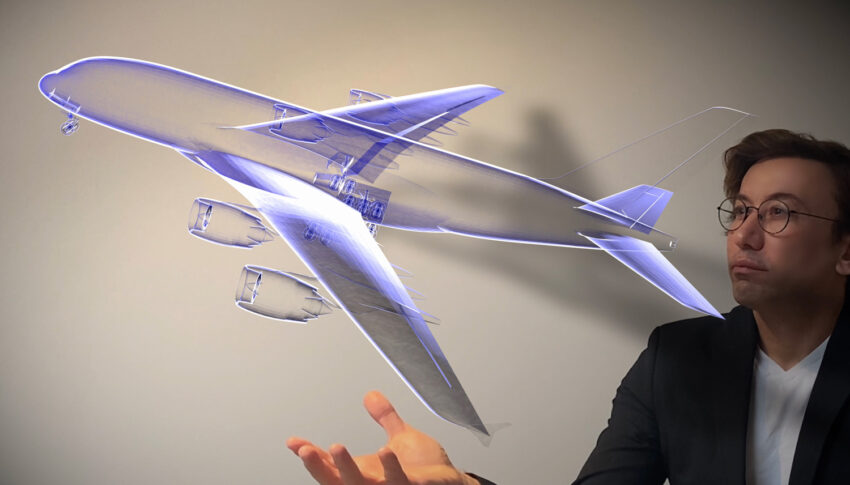The barrier between automation and AI in aviation continues to thin, as advanced automation algorithms and first-generation implementations of machine learning and other early AI technologies begin to blend together. We dive into some early case studies, in advance of a wider series later this year.
MRO operator HAECO recently kickstarted an AI enabled operations project, Summit Chan, group director corporate development, tells us. “We believe leveraging AI to optimise our operations can bring enormous benefits, such as in the planning of non-routine tasks and resource requirements. One example would be making more accurate predictions for non-routine cards, a record of unscheduled maintenance details that is issued when a defect or damage is observed on an aircraft during scheduled maintenance.”
HAECO is also iterating its use of drones for aircraft maintenance inspections, building on work in this space since 2018.
Already, Chan says, “over 400 aircraft have been inspected in Xiamen, with trials for the drones to operate autonomously. Looking forward, we will explore computer vision technology with drones to increase the speed and accuracy of our inspection process, and gain near real-time insights for proactive maintenance planning.”
During a recent tour of HAECO headquarters in Hong Kong, your author observed the latest in autonomous guided vehicle management systems operating a substantial part of the parts, tools and equipment service within the MRO hangar.
“Currently,” Chan says, “we have six robots managing 500sqm of service area, and handling up to 500 material management transactions daily. HAECO is looking to expand the coverage of AGVs to more areas of our operations, so technicians can be freed for higher-value tasks and achieve better productivity.”
In the context of the ongoing staffing crunch within aviation and MRO specifically, this offers much benefit.
Elsewhere, HAECO has been deploying robotics within operations, including robotic arms within the engine overhaul shops and robotic process automation within its back office, and plans to integrate further automation and computer vision in the future.
More widely, Tomasz Pawliszyn, AirHelp chief executive officer tells us, “the integration of artificial intelligence in the aviation industry has the potential to transform the sector. AI-enabled features such as smart personalisation, automated customer service and facial recognition are all becoming increasingly prevalent. What’s more, AI tools, including chatbots and virtual assistants, are being leveraged to provide real-time customer service to customers around the clock. AI also enables businesses across the industry to personalise offers and make recommendations to passengers, increasing customer satisfaction in the long run.”
AI promises benefits from chatbots speeding up customer service answers to facial recognition scanning cutting queues at airports, all the way through to optimisation of network planning, flight scheduling and aircraft capacity management.
Digital inclusion, too, is at the forefront of the industry, but key questions include how to ensure accessibility, and where and how the costs of digitalisation should be accounted for.
“We strongly believe that inclusion and accessibility should not come at an additional cost for passengers,” Pawliszyn says. “The industry needs to accelerate its efforts to create digital inclusion, including the digitisation of boarding passes, facial scanning or online check-ins, and make this easily accessible for passengers who may struggle with online resources.”
However, Pawliszyn says, “cybersecurity remains the biggest risk to the aviation industry. Concerns have been heightened with the further introduction of AI, with emerging risks around cybersecurity vulnerabilities, data privacy and security. As AI systems gather and analyse vast amounts of passenger data, including personal information, travel habits, and preferences, there is an inherent risk of data breaches or misuse that the aviation industry needs to be aware of.”
We’re planning a full series looking at the best early case studies of AI within aviation later this year. If you have a great implementation up and running already, please drop our journalist John Walton an email at john@walton.travel with more details — we’d love to include it!



